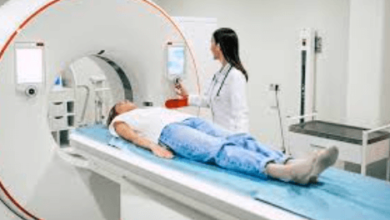Why HIV Testing Is Crucial for Everyone’s Health in 2025

Advances being made across the globe in health and technology will see HIV continuing to be of global concern in 2025. With over 38 million cases of people living with HIV, global reference to early detection and prevention cannot be overstated. An HIV test extends beyond being a mere diagnostic tool to becoming a powerful step towards the emancipation of individuals and communities from health and well-being shortcomings. Yet, despite the revolutionary treatment and care programs, misinformation, stigma, and fear have prevented many people from accessing this step.
At present, testing for HIV is the most speedy, accessible, and accurate scale, ranging from lab tests to easy at-home kits. Testing regularly makes the individual accountable for their health, puts more wind under the sails of public health works, and ensures a society unravaged by the very hurt HIV can bring without any treatment. This post outlines the top reasons everyone needs HIV testing and its important implication in delivering healthier lives in 2025 and beyond.
10 Reasons Why HIV Testing Is Crucial for Everyone’s Health
The reality of what an HIV test signifies cuts across both personal and public health dimensions, and here are 10 major reasons why getting tested is an important step for everyone:
- Early Detection Saves Lives
Getting HIV diagnosed early allows entry into treatment before significant damage is inflicted on the immune system by the virus. Early detection of the virus also minimizes the risks of opportunistic infections and other serious health complications that may arise out of untreated HIV. Early diagnosis and treatment will allow a person to have a healthy and long-life lifestyle, thus minimizing the viral effects in the long term.
- Helps Control the Spread of HIV
Many people live with HIV in ignorance of their status, which increases the risk of their unknowingly transmitting the virus to other people. With routine HIV tests, those who are found positive can take proper precautions like using protection and following treatment so that they can prevent other people from getting infected. By knowing their status, they contribute to breaking transmission within communities.
- Facilitates Better Access to Effective Treatments
The early testing will enable ART, an essential means for the effective management of HIV. Not only does ART suppress the virus, but it also allows persons living with HIV to attain an undetectable viral load, meaning that it cannot be transmitted through sexual contact. Timely treatment will also eliminate the chances of the development of drug resistance, thus ensuring health benefits in the long run.
- Encourages Routine Health Check-Ups
So, people may be encouraged to embrace health in a way that includes regular check-ups, including HIV testing. Routine testing could also reveal other conditions like hypertension, manifestations of diabetes, or other sexually transmitted infections (STIs) that might accompany HIV. Thus, this comprehensive approach envisions holistic wellness with healthy lifestyle practices.
- Comprehensive Testing for Co-Infections
HIV testing usually includes additional tests for other infections, such as hepatitis, gonorrhea, and syphilis. Thus, the syphilis report is typically combined with an HIV test so that people can have full knowledge of their sexual health. Detecting and treating early co-infections is only possible through a Syphilis Test, and it helps to prevent complications and will help in increasing the rate of success of HIV treatment as well.
- Prevents Mother-to-Child Transmission
Pregnant women not being aware of their HIV status may expose their baby to the virus during the period of pregnancy, delivery, or through breastfeeding. Early testing for HIV helps healthcare professionals provide effective treatment to reduce the chances for the baby to acquire the infection from the mother. Therefore, it is essential for both mother and child and for tomorrow’s generation to be born free from HIV.
- Reduces the Stigma Surrounding HIV
Normalizing HIV testing within general healthcare will help dilute both stigma and fear about the condition. More people will disassociate their testing with high-risk activity, as it will become a routine practice for all. This makes it easier to talk about HIV openly and creates a more friendly environment in which people living with the virus can feel more accepted.
- Empowers Individuals to Make Informed Choices
Knowing one’s HIV status is very crucial for making choices about one’s personal health, relationships, and family planning decisions. It empowers individuals to take the necessary proactive measures to protect themselves and their partners through protection or treatment. This enhances confidence and control over one’s health, thereby reducing the level of uncertainty and stress.
- Contributes to Global Health Goals
Universal Access to HIV Testing is a global health headline strategy that is meant to reduce the impact of HIV. Examples include the UNAIDS 95-95-95, which is under which aims to help 95% of people living with HIV know their status, 95% of those diagnosed on treatment, and 95% of all those patients achieving viral suppression. Regular testing is significant for achieving these goals and will eventually clear the worldwide HIV epidemic.
- Offers Peace of Mind and Reduces Anxiety
Living under a cloud of uncertainty and unknown about one’s HIV status leads to the complexity of stress, fear, and anxiety as one goes through life, especially in some risky high-risk activity participation or some unexplained symptoms. An HIV test serves as a moment of decision regardless of whether it turns negative or positive. And when it is positive, it opens the door to treatment and support. And if negative, it offers reassurance and the chance to continue preventive practices for health maintenance.
Read also: Medical Imaging Services for Accurate Diagnosis
The Final Words
It’s not just a procedure to diagnose the infection. HIV test is also a way to walk toward improved well-being and an instrumental measure in fighting the HIV scourge. Testing is not for self alone but involves the whole community in a safe, healthy environment. Move towards 2025 with a commitment to destigmatizing testing for HIV and breaking down barriers of fear. Whether it’s testing at home, within a clinic, or as part of an annual physical, this is a call to make HIV testing a priority. Save lives through early detection and get tested now!




